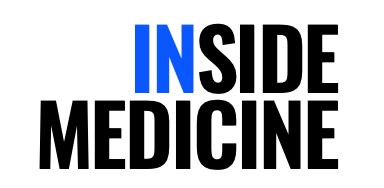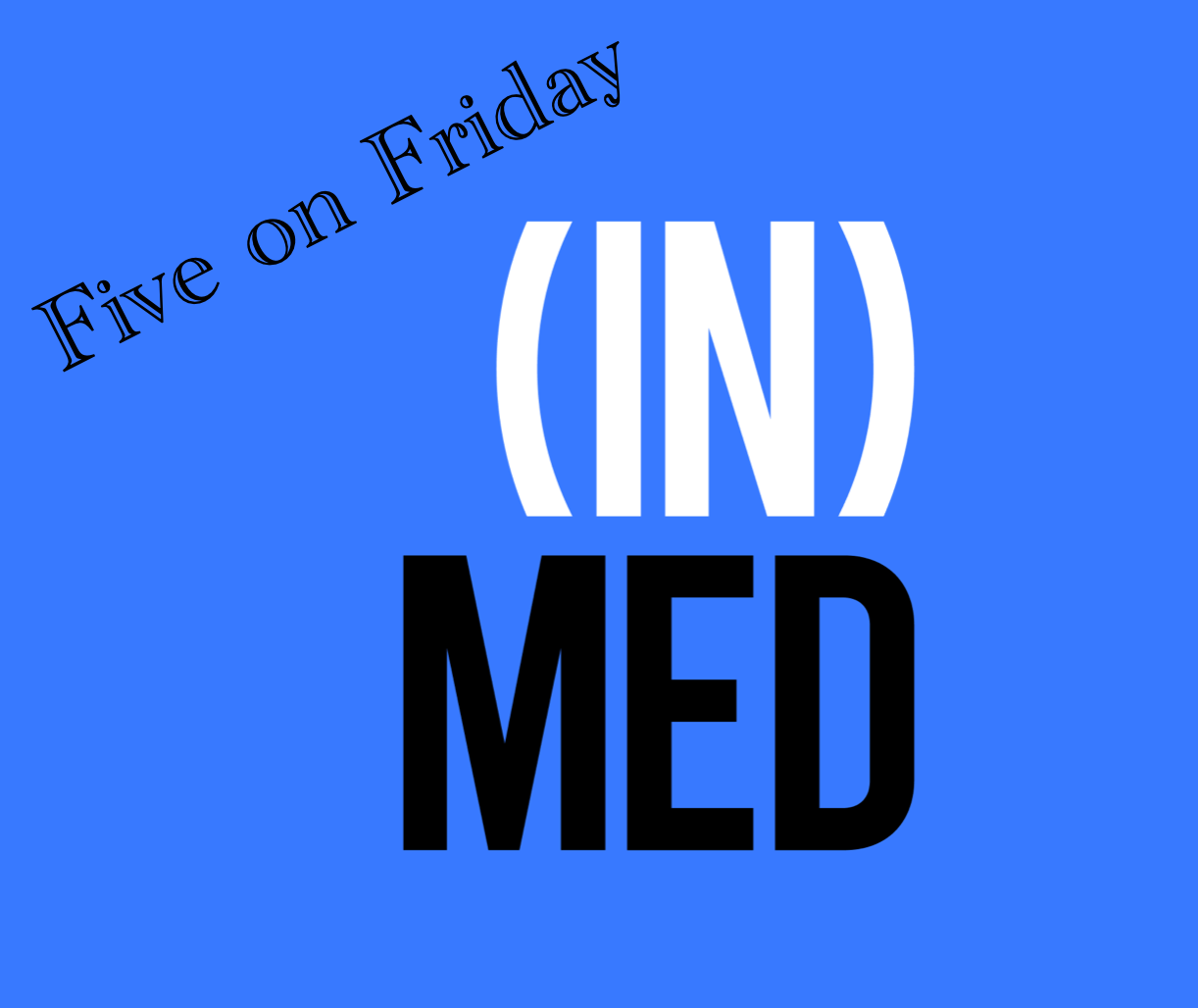Why do we keep having summer Covid waves? Can Paxlovid prevent transmission?
These and other stories in "Five on Friday" for July 19, 2024...
We are back with “Five on Friday", the feature where Inside Medicine behaves like an actual newsletter. If you value this service—and Inside Medicine in general…
Also, please vote in the poll at the end!
Here we go…
Item 1: What I’m reading: Why do we have summer Covid waves?
We keep seeing Covid waves in the summer. The question is why. An article in Scientific American gets at some of the reasons. First, antibodies from winter infections (when the virus has the best chance to spread) wane. So by the summer, the risk of infection has started to increase again. (The severity of cases might be lower, because winter indeed knocks out a bunch of medically frail people and the year’s fresh population of replacements has not yet entirely caught up; this is called “pull forward.”) Second, it may be that SARS-CoV-2 itself is somewhat less affected by summer conditions than other pathogens like influenza. There’s not much doubt that SARS-CoV-2 has an emerging seasonality to it, in that seems to spread more easily in the winter. But wastewater shows that compared to other bugs like RSV and flu, it is more able to circulate significantly in the summer months, albeit generally at lower levels than winter peaks (especially in certain parts of the country with specific extremes of temperature and humidity). Whether this will abate as population immunity grows over time is unclear, but I don’t except major changes in the foreseeable future, given that we now live variant to variant, as I predicted we would back in 2022.
Item 2: Can international medical graduates address US doctor shortages?
Medicine is medicine, right? It’s not like the law, where things vary by nation or state. Whether living in Albania, Algiers, Alaska, or Alabama, antibiotics cure bacterial pneumonia, and if you have a dangerous clotting disorder, you need to be in blood thinners. So why is the bar to practice medicine in the US so high for graduates of non-US medical schools? Sure, we want to know that someone who got their medical degree in a less wealthy nation is up-to-speed on US-style medical practice.
That’s why we have board exams. These arduous tests should be equalizers. Someone who scores in the 90th percentile knows a lot about medicine, regardless of where they learned it. But it turns out that international medical graduates (IMGs) must achieve far higher scores on US board exams than graduates of US medical schools if they want to work here.
A new article in the Journal of the American Medical Association presents recent data and discusses some related issues. First, there remains a lot of skepticism towards IMGs. In fact, IMGs who score in the 95th percentile on the US medical boards (historically used to vet potential residents) still fail to match into US residency positions over 20% of the time. Meanwhile, students getting their MDs in the US who merely scored in the 50th percentile on the exam have a better than 98% chance of matching.
IMGs have a lot to offer us here in the US, especially those who have already completed their specialty training. Anyone willing to retake the medical boards, move here, and repeat residency, is clearly a highly motivated person. I’ve seen this in my own experience. Plus, IMGs are often willing to work in underserved areas, just to get their foot in the door here. In recent years, some states have made new laws allowing IMGs who have completed training equivalent to residency to skip a US residency (rather than repeat it). This is smart. We need to recruit bright people to come to this country. Historically, that has been this nation’s main advantage over others. We’ve often been on the favorable end of a brain drain. Medicine is a field where this should continue to play out, if we have the right policies and shed our skepticism.
Item 3: Failed Paxlovid post-exposure prophylaxis study finally published. It should be repeated.
I’ve written before about Pfizer’s clinical trial of Paxlovid as PEP (post-exposure prophylaxis) and how it appeared that the study failed to show a benefit in decreasing household spread of Covid-19. At last, the official study was published on Wednesday in the New England Journal of Medicine. As expected based on prior press releases, neither 5 or 10-day courses of Paxlovid taken by household contacts of an infected individual decreased the rate of infection compared to those who instead received a placebo. However, I think this is an example of how science in a pandemic is not easy. The researchers thought they could get a much higher reduction in infections than they did. So even though nearly 39% fewer symptomatic infections occurred in the group that received Paxlovid for 10 days than the placebo group, that was not statistically significant. Interestingly, when they measured both asymptomatic and symptomatic infections, the finding was significant! But, that outcome was not the intended primary analysis of the study, so it can’t be relied on.
I am unusually sympathetic to this “negative” study. Usually, when a study misses its main outcome, I call it a day and move on (and try not to be unduly swayed by any secondary findings that really do mean less). The reason I’m more optimistic that Paxlovid might actually prevent infections is that I think a nearly 39% decrease in infections probably represents something meaningful. Basically, the authors just got their “power” calculations wrong. They assumed that 8% of placebo recipients would be infected. In reality, less than 4% were. A little math and we’d find that if the study had been 25% bigger and the placebo group had the expected higher rate of infection, we’d be hailing this drug as able to stop infections.
Again, in normal circumstances, I am not a fan of trying to revive negative studies with Monday morning quarterbacking on the study design. (And you know that in general, I’m less convinced about Paxlovid’s effectiveness now than I was in 2022). But in this case, I think it’s fair to look for signs of hope. This wasn’t a study of some long-understood disease, whose characteristics and epidemiology were stable. This study was designed in 2021 and lots was in flux during the study itself. I’d like to see this study repeated with an improved design, based on what we’ve learned about this virus, and lower rates of attack in homes with good mitigation measures in place.
Item 4: Reminder! Live Q&A today with “Your Local Epidemiologist” Dr. Katelyn Jetelina and Dr. Katrine Wallace. Noon ET!
Just a quick nudge about today’s Instagram Live that I’m hosting. I’ll be joined by two public health and epidemiology experts, Dr. Katelyn Jetelina and Dr. Katrine Wallace. We’ll be discussing measles, H5N1 influenza (bird flu), and Covid.
Follow the MedPage Today Instagram account and find us at 12pm ET today! And if you can’t make it, don’t worry: we’ll try to get a recording shared sometime soon.
Item 5: Poll of the Week.
Here are the results from last week’s poll. Thanks for your votes!
Item 5a: Poll of the Week for this week!
This week’s poll is about Inside Medicine. I’ve been doing the “Five on Friday” format for a while now, and it seems popular. But sometimes I do this feature instead of a deeper dive on one of the topics covered in it. I see pros and cons to this.
So….
That’s it. Your “Friday Five!”
Feedback! Do you like the “Five on Friday” format? Have any ideas for next week’s Poll of the Week? Any great articles you read elsewhere that you want to share with the Inside Medicine community? Other musings or thoughts?
Please contribute to the Comments!








It would be cool to have research regarding how getting covid may decrease people’s ability to easily fight off common viruses and infections within a year or two~ like strep throat, EBV, mononucleosis, flu, pneumonia etc. What perhaps changes or shifts in our bodies to make it harder to clear other ailments? All ages of people…
On summer COVID...heard an interesting interview with a virologist from Johns Hopkins, I believe, on NPR yesterday. We are having an earlier summer COVID surge than past summers, AND it is more a problem in the US than other countries this time. His contention was it was likely because of the excessive heatwave and that has forced more people indoors even when traveling. He talked a lot about the problem of fans and AC being horizontal air flow as an issue in spreading the virus. Sorry to miss the podcast with Jetalyna but will catch the recording when you send that out. I would have asked the question about pacing COVID vax/boosters for those of us severely immune compromised. I had my last one in April but was holding off for the one in Fall. Not getting much guidance from my multitude of docs and specialists.